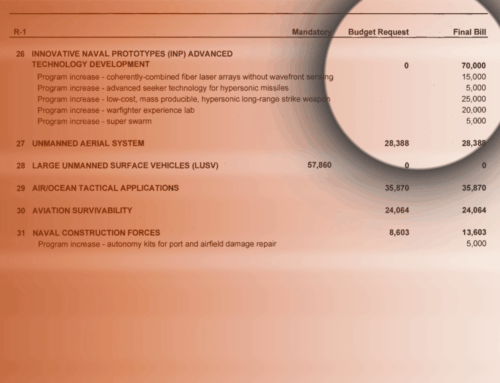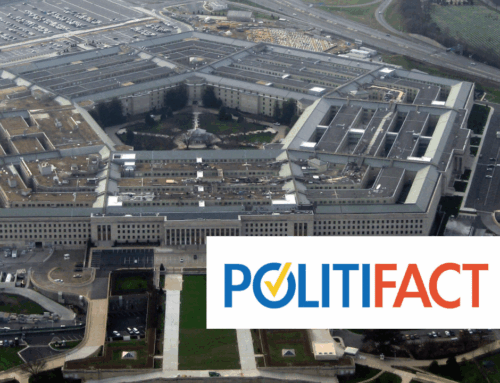TCS followers know we have argued for increased oversight of defense spending, particularly spending on contracts. The federal government’s internal oversight agency, the Government Accountability Office (GAO), has long warned that Defense Department contracting practices are at “high-risk” of waste, fraud and abuse. A GAO investigation released Wednesday revealed that the Defense Department organization responsible for auditing contracts with the private sector is severely compromised. The investigation of 14 audits by the Defense Contract Auditing Agency (DCAA) found that “contractor officials and the DOD contracting community improperly influenced the audit scope, conclusions, and opinions of some audits—a serious independence issue.”
The Senate Homeland Security and Government Affairs Committee, which requested the investigation in 2006 following several whistleblower complaints, released the names of the companies that were the subject of the reviewed audits. Here’s a summary of the findings:
Contractor A = Boeing’s Integrated Defense Systems:
-
“In the face of pressure from the Defense contracting community…we found evidence that there was an up-front agreement between DCAA and Contractor A to limit the scope of work and basis for the audit opinion (a significant impairment of auditor independence).”
- “On the basis of an ‘inadequate in part’ opinion reported in May 2006, the buying command negotiated a $967 million contract that has grown to $1.2 billion.”
Contractor B = Parker Hannafin:
- “Branch manager and supervisory auditor predetermined that there was no defective pricing.”
Contractor C = L3 Communications’ Interstate Electronics Corporation:
- After the original auditor who found improper billing was replaced, the “new auditor and supervisory auditor worked together to modify working papers and change the draft audit opinion from ‘inadequate’ to ‘inadequate in part’ and, finally, to ‘adequate’.” Based on the “adequate” finding, the company was awarded direct billing privileges.
Contractor D = Fluor:
- “Supervisory auditor subsequently modified documents to change the draft audit opinion from ‘inadequate in part’ to ‘adequate’ before issuing the final report.”
Contractor E = Northrop Grumman:
-
“An internal DCAA Region audit quality review found audits where the audit working papers did not support the final audit report, working paper files were lost, and working paper files were not archived in the DCAA-required time period.”
- The 62 audits conducted on the company between 2002 and 2006 “were connected with over $6.4 billion in government contract negotiations.”
Contractor F = SPARTA Inc.:
- “We found a lack of audit evidence to support dropping six of eight findings of significant deficiencies.”
- “Although the branch office reported an “inadequate in part opinion,” it used the audit as support for maintaining this contractor’s direct-billing privileges…As a result of this decision, the government was put at risk of paying Contractor F for overbilled amounts with no government review of its invoices prior to payment.”
Contractor G = SRS Technologies Inc.:
- “After original auditor was transferred to another audit, a second auditor significantly limited the scope of the audit with supervisory approval, deleting most of the standard audit steps.”
.










